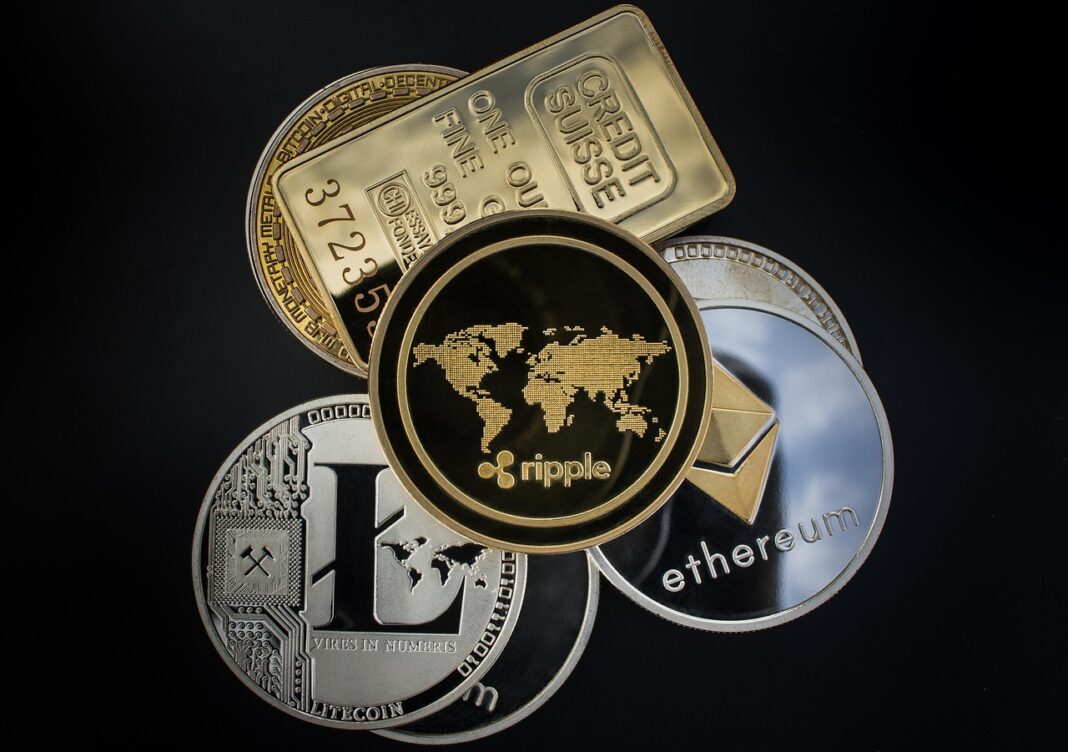Embarking on your cryptocurrency journey can feel like navigating uncharted waters. The sheer volume of available coins and tokens can be overwhelming, especially for beginners. This guide aims to simplify the process by highlighting some of the top cryptocurrencies that are often considered good entry points into the exciting world of digital assets, focusing on their accessibility, understanding, and potential for long-term growth.
Understanding Cryptocurrency Basics for Beginners
What is Cryptocurrency?
Cryptocurrency is a digital or virtual currency secured by cryptography, which makes it nearly impossible to counterfeit or double-spend. Many cryptocurrencies are decentralized networks based on blockchain technology—a distributed ledger enforced by a disparate network of computers. Think of it as digital gold, but instead of being mined from the earth, it’s “mined” through complex computational processes.
Key Concepts to Grasp Before Investing
Before diving into specific cryptocurrencies, it’s crucial to understand some core concepts:
- Blockchain: The foundational technology underpinning most cryptocurrencies. It’s a public, immutable ledger that records all transactions.
- Decentralization: Cryptocurrency networks are typically not controlled by a single entity, but rather by a distributed network of users.
- Wallet: A digital wallet is where you store your cryptocurrency. It can be a software wallet on your computer or phone, a hardware wallet (like a USB drive), or even a paper wallet.
- Exchange: A platform where you can buy, sell, and trade cryptocurrencies. Popular exchanges include Coinbase, Binance, and Kraken.
- Market Capitalization: The total value of a cryptocurrency, calculated by multiplying the current price by the number of coins in circulation.
- Volatility: The degree to which the price of a cryptocurrency fluctuates over time. Cryptocurrency markets are notoriously volatile.
Top Beginner-Friendly Cryptocurrencies
Bitcoin (BTC)
Often referred to as the “king” of cryptocurrencies, Bitcoin is the original and most well-known. Its widespread recognition and established infrastructure make it a relatively safe starting point for beginners.
- Pros: Highest market capitalization, largest network effect, widely accepted and understood.
- Cons: Higher transaction fees compared to some other cryptocurrencies, slower transaction speeds.
- Example: You can purchase Bitcoin through any major cryptocurrency exchange. Many businesses now accept Bitcoin as payment, allowing you to spend it on various goods and services.
Ethereum (ETH)
Ethereum is the second-largest cryptocurrency by market capitalization and is known for its smart contract functionality. Smart contracts are self-executing contracts written in code, which enable the creation of decentralized applications (dApps).
- Pros: Robust ecosystem for dApps and decentralized finance (DeFi), potential for long-term growth due to its innovative technology.
- Cons: Can be subject to high gas fees (transaction fees) during periods of network congestion. The transition to Proof-of-Stake (PoS) (the “Merge”) addressed some concerns, but complexities still exist.
- Example: You can use Ethereum to participate in DeFi protocols, such as lending and borrowing platforms, or to purchase and trade NFTs (Non-Fungible Tokens).
Cardano (ADA)
Cardano is a proof-of-stake (PoS) blockchain platform developed through evidence-based methods. It aims to provide a more secure and sustainable ecosystem for dApps and decentralized systems.
- Pros: Emphasis on security and sustainability, lower transaction fees compared to Bitcoin and Ethereum, actively developed.
- Cons: Slower development and rollout of features compared to some other blockchains.
- Example: You can stake your Cardano to earn rewards and participate in the network’s consensus mechanism.
Solana (SOL)
Solana is a high-performance blockchain designed for scalability and speed. It aims to solve the scalability issues faced by some other blockchains, making it suitable for dApps and DeFi applications that require high throughput.
- Pros: High transaction speeds, low transaction fees, growing ecosystem of dApps and DeFi protocols.
- Cons: Has experienced network outages in the past, which has raised concerns about its reliability. Its speed relies on novel technology which is still relatively new.
- Example: You can use Solana to trade on decentralized exchanges (DEXs), participate in DeFi protocols, and mint NFTs.
Litecoin (LTC)
Often referred to as the “silver” to Bitcoin’s “gold,” Litecoin is one of the earliest altcoins, designed to be a faster and cheaper alternative to Bitcoin.
- Pros: Faster transaction speeds and lower transaction fees compared to Bitcoin, well-established and widely accepted.
- Cons: Less innovative compared to some newer cryptocurrencies, smaller ecosystem compared to Bitcoin and Ethereum.
- Example: Litecoin is accepted by a growing number of merchants as payment for goods and services.
Choosing the Right Cryptocurrency for You
Research and Due Diligence
Before investing in any cryptocurrency, it’s crucial to do your own research. Understand the project’s goals, the technology behind it, and the team behind it. Look at the project’s whitepaper, read news articles, and follow the project’s social media channels.
Diversification
Don’t put all your eggs in one basket. Diversify your cryptocurrency portfolio by investing in a variety of different cryptocurrencies. This can help mitigate your risk.
Risk Management
Cryptocurrency markets are highly volatile. Only invest what you can afford to lose. Set stop-loss orders to limit your potential losses.
Buying and Storing Your Cryptocurrency
Choosing a Cryptocurrency Exchange
Select a reputable cryptocurrency exchange that offers the cryptocurrencies you want to buy. Consider factors such as fees, security, and ease of use.
Securing Your Cryptocurrency
Security is paramount. Enable two-factor authentication (2FA) on your exchange account and consider using a hardware wallet for long-term storage. Never share your private keys with anyone.
Conclusion
Entering the world of cryptocurrency investment can be an exciting endeavor. Starting with more established cryptocurrencies like Bitcoin, Ethereum, Cardano, Solana, and Litecoin provides a solid foundation. Remember to prioritize research, diversification, and risk management to navigate the volatile crypto landscape successfully. This approach will allow you to make informed decisions and potentially benefit from the long-term growth of the digital asset market.






